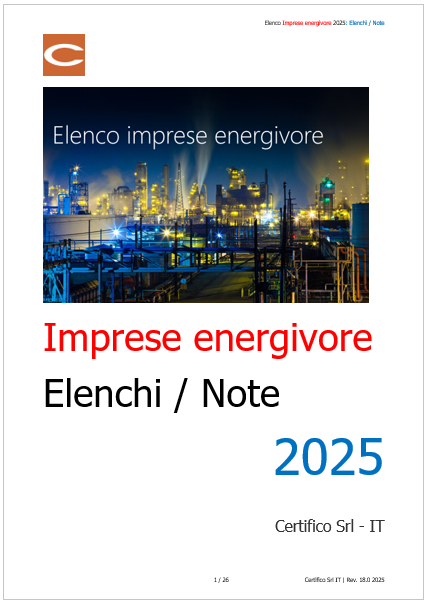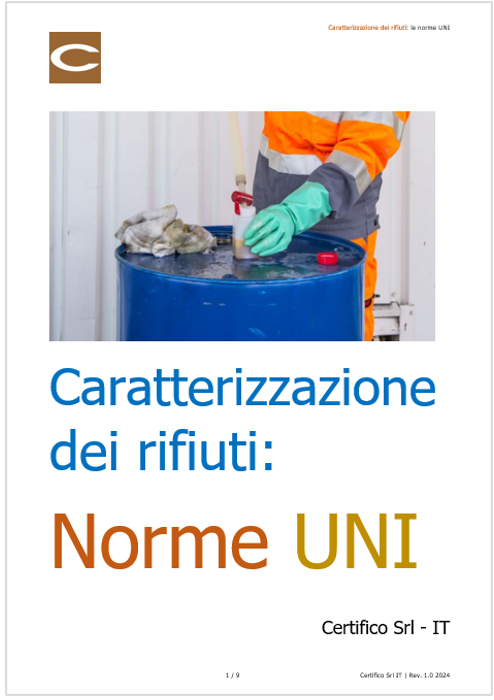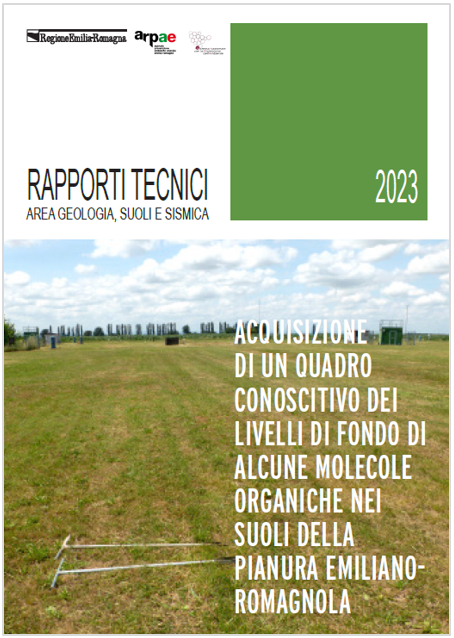Imprese energivore: Elenchi / Note 2025

Imprese Energivore (Elettrivore - Gasivore) - Elenchi / Note 21 Ottobre 2025
ID 15400 | Rev. 19.0 del 21.10.2025 / Documento note completo allegato ed Elenchi 2021/2025
Il Documento allegato illustra la...
ID 19366 | 04.04.2023
The EU assessment of Critical raw materials (CRMs) has been launched as the first action of the EU Raw Materials Initiative (RMI) of 2008. This EU policy pursues a diversification strategy for securing non-energy raw materials for EU industrial value chains and societal well-being. Diversification of supply concerns reducing dependencies in all dimensions - by sourcing of primary raw materials from the EU and third countries, increasing secondary raw materials supply through resource efficiency and circularity, and finding alternatives to scarce raw materials.
One of the priority actions of the RMI was to establish a list of critical raw materials at EU level. The first list was published in 2011 and it is updated every three years to regularly assess the criticality of raw materials for the EU. CRMs are considered to be those that have high economic importance for the EU (based on the value added of corresponding EU manufacturing sectors, corrected by a substitution index) and a high supply risk (based on supply concentration at global and EU levels weighted by a governance performance index, corrected by recycling and substitution parameters).
The first assessment (2011) identified 14 CRMs out of the 41 candidate raw materials, in 2014, 20 out of 54 candidates, in 2017, 27 CRMs out of 78 candidates, and in 2020, 30 out of 83 candidates.
Pressure on resources will increase - due to increasing global population, industrialisation, digitalisation, increasing demand from developing countries and the transition to climate neutrality with metals, minerals and biotic materials used in low emission technologies and products. OECD forecasts that global materials demand will more than double from 79 billion tonnes today to 167 billion tonnes in 2060. Global competition for resources will become fierce in the coming decade.
Dependence of critical raw materials may soon replace today's dependence on oil.
Raw materials are indispensable for the EU’s industry and stand at the very beginning of each value chain. Amongst the non-energy, non-agricultural raw materials that are assessed by the European Commission, some are defined as critical based on objective criteria including their economic importance and their supply risk. CRMs are often produced and used in relatively small quantities4 but have special characteristics that make them essential ingredients for products in strategic areas such as renewable energy, digital, aerospace and defence technologies. Well-known examples include the rare earths elements found in the permanent magnets used to manufacture wind turbines motors, lithium used for batteries, and silicon used for semiconductors.
In light of these applications, critical raw materials are key to enable the European industry to meet the political goals of the EU. The European Green Deal6, the REPowerEU Communication7, the Joint Communication on Defence Investment Gaps Analysis and Way Forward8 and the Digital Strategy9 have all established objectives or targets to achieve the green and digital transitions and strengthen the EU’s resilience and strategic autonomy, which depend on the availability of critical raw materials, while the European Commission has already began the implementation of the action plan set up in the 2020 Communication on Critical Raw Materials.
In 2022, the European Council’s adopted the Versailles Declaration, which called to “take further decisive steps towards building our European sovereignty” and toward “reducing our dependencies”. It called to secure EU supply of CRMs, particularly by building on the strengths of the Single Market. Similarly, the European Parliament called for an EU strategy for critical raw materials in its November 2021 resolution. The Conference on the Future of Europe also recommended for the EU to reduce dependence on other countries for CRMs. Against this background, the President of the European Commission announced in her State of the Union speech in 2022 a new legislative proposal, the European Critical Raw Materials Act, notably to identify strategic projects all along the value chain and to build up strategic reserves where supply is at risk.
This technical assessment 2023 is feeding into the legislative package of the Critical Raw Materials Act and serves as a base for definition of the list of CRMs for the EU.
...
Fonte: EC
Collegati

ID 15400 | Rev. 19.0 del 21.10.2025 / Documento note completo allegato ed Elenchi 2021/2025
Il Documento allegato illustra la...

ID 19430 | 15.12.2024 / In allegato documento completo
Elenco norme UNI riguardanti la caratterizzazione dei rifiuti.
Elenco sintesi al 15 Dic...

ID 22691 | 08.10.2024 / In allegato
Acquisizione di un quadro conoscitivo dei dati
Il progetto...
Testata editoriale iscritta al n. 22/2024 del registro periodici della cancelleria del Tribunale di Perugia in data 19.11.2024